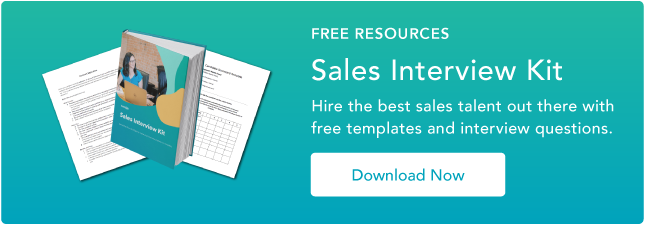Here, we'll define coachability in sales (and why it matters), explore what it takes to be truly coachable, and how to answer interview questions about this topic.
Sales coaching can help you stay accountable, hit your quota more consistently, and contribute more to your team's success.
In fact, more than 70% of people who receive coaching report an improvement in work performance. What makes coaching so effective? Surprisingly, it's not the actual tools or techniques that do the trick. Instead, it's your readiness to be coachable.
This was confirmed by a 2009 study that found the biggest factor for impactful coaching was the learner's willingness to be coached.
The problem? Humans are naturally defensive. We don't like our weaknesses pointed out, and we often confuse feedback with critiques.
Yet, coaching is necessary for professional growth — especially if you're in a sales role. After all, it's impossible to "master sales'' when new techniques, strategies, and tech are right around the corner.
Plus, due to the nature of the job, salespeople are highly vulnerable to stress and burnout — and coaching can alleviate these issues before they come to a head.
So, one question remains – how can you become truly coachable? Let's discuss a few strategies below.
How to Be More Coachable
1. Remember the common goal between you and your coach.
If you're new to coaching, it's easy to adopt an "us versus them" mentality. In reality, you and your coach are on the same team, working towards the same goal. Even if the feedback is tough, remember that it's being given in good faith to help you grow, identify blindspots, and apply new techniques.
In other words, when you succeed, your coach succeeds too.
2. Resist the temptation to make excuses.
It's a natural response to make excuses in the face of criticism. We might pass blame on another person or even the company ("It's always been done that way here...").
Often, we use excuses to avoid feeling discomfort, fear, or embarrassment. However, for coaching to work, you must prioritize improvement over being "correct." This means going outside your comfort zone, taking ownership when necessary, and leaving your ego at the door.
3. Have a beginner's mindset.
Your mindset can make or break your coaching.
For example, if you're starting a career in sales, it's much easier to embrace (and even seek out) learning opportunities.
But if you're a veteran salesperson, you could be "stuck in your ways" and unwilling to change. For instance, you might resist learning a new sales tool — or balk at a new closing technique suggested by your coach.
Thinking like a beginner allows you to be curious about something new — and open to learning more. It gives you the freedom to take risks, recover from mistakes, and improve with practice. This type of mindset can take your coaching to new levels.
4. Ask for clarification.
Working with a coach is more than nodding your head "yes" and agreeing to whatever they say. Pretending to agree with your coach — and then doing the opposite — is a surefire way to sabotage your work.
Coaching is a conversation. It's not just listening to feedback, but also asking questions when you need clarification. For instance, you can ask for specific examples or details on how you can improve.
Taking the initiative sends a clear message to your coach that you're open to learning and ready to grow.
Coachability Interview Questions
Because the annual turnover rate among sales professionals is notoriously high, hiring managers want to know that you have the right attitude, determination, and mindset for the job – and they do this by gauging your coachability.
In your next interview, expect to answer a few behavioral questions that test your willingness to learn and grow. For example:

Another approach is to use role-playing exercises. For example, a hiring manager might ask you to walk through a mock scenario, such as a discovery call. After, you may be asked to list the strengths and weaknesses of your performance.
The hiring manager is testing how reflective and analytical you are about your own performance. If you reply, "I did great, no improvements needed!" this is a red flag. A candidate with high coachability will reflect, self-diagnose, and propose improvements.
Back to You
The difference between a good salesperson and a great one is their willingness to improve, learn, and grow. In other words, if you want to unlock your potential and reach new career heights, focus on become more coachable.
Sales Training

.jpg)

-Sep-24-2025-08-06-04-5244-PM.webp)
![Want to be a sales rep? Here’s everything you need to get started [+ tips]](https://53.fs1.hubspotusercontent-na1.net/hubfs/53/Operation-everest-getting-started-as-a-sales-rep-1-20250915-1709284.webp)





![Virtual vs. In-Person Training: Pros & Cons of Each [New Data]](https://53.fs1.hubspotusercontent-na1.net/hubfs/53/inperson-vs-online.webp)

